
As testified by the Q1 report on stats and traffic, the usage of the ComPart wikis has increased quite substantially in the first three month of 2010. The decision to use wikis in the process of writing the ICCO Alliance business and strategic plan contributed significantly to these positive results.
However, this is only part of the story. Over the past months, several teams and departments have been introducing wikis to support their daily activities, adapting their practices and moving part of their work-flow onto workspaces created on the new ComPart network platform.
As clearly emerged also in the
ComPart lunch time meeting in February, two main issues need to be addressed at this stage:
- How best to structure the different workspaces so that their navigation and usability can be improved?
- How best to structure the 'ComPart wiki garden' in its all complexity, improving the linkages between the different workspaces?
To answer these questions, on April 20, 2010, we organised a wiki structuring workshop with some 15 ICCO staff from the Global Office in Utrecht.
Walk in the shoes of your readersIn the first part, ICCO colleagues were divided in small groups, and were tasked to look at one specific wiki of their choice through the eyes of the end users.
Beforehand, we had developed different
personas and shared them with participants. Each persona exemplifies a potential ICCO staff in the Global and Regional offices, their task, their working habits, their personalities, and their needs in terms of information that they would like to find on a specific wiki.
We asked each group to choose one persona and review a wiki through the eyes of this character. Will he/she be able to find the information he/she's looking for, in an easy way, avoiding the feeling of overload and the subsequent "death by wiki"?
In a nutshell, the groups come up with the following recommendations:
- Wikis start from content, and not from people: it would be good to improve the use the social networking functionalities already embedded in the PBworks platform and focus more on the community aspect behind a workspace;
- It is sometimes difficult to get a clear overview of what a wiki is about: 'you get a lot of documents and information, some of which is outdated'. This calls for more 'gardening', better document management and a clearer file storing system;
- There is a need to develop better introductory pages that explain in a nutshell what each wiki is about. At the moment we often have lengthy information pages;
- The same goes for sub-level pages: Each page should have a quick intro text, a table of contents, and a clear message about what readers can find.
Do you use scents or the paths to find your way round a garden?
The second part of the workshop instead focussed on the whole 'ComPart garden', to see how this could be better organised.
At the moment, out of the 100 created wikis, some 70 are in use (at different levels). Are we on the right track? Which workspaces are we still missing? Which other should be merged? Which to be archived or deleted? And how can we improve the linkages between the different workspaces?
Working in groups, participants were given series of cards with the names of the workspaces, divided by colours for the different themes/issues covered, and departments they fit under. Starting from this, we asked ICCO staff to review what we have, and come up with suggestions on structuring the whole.
As a result, different perspectives emerged:
- For some, the structure of the garden has to be as flexible as possible, using tags and combinations of tags to make sure the wikis (and their pages) can easily be findable from users coming in from different perspectives, and with different needs.
- Others suggested a model based more on a 'corporate perspective' derived from ICCO Alliance strategic plan, clustering wikis by activities of the global and regional offices, strategies and thematic programmes. A top level wiki on ICCO values and identity could be developed.
- A third group proposed to structure the garden around programmes, strategies, and department of the global office that provide 'services and support' to the regional offices.
The ComPart team really appreciated the valuable suggestions and the conclusions that emerged from the workshop, and will take these recommendation forward in the support we are providing to ICCO staff, and in the ComPart enablers works planned for 18-21 May 2010.




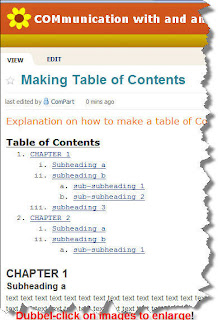
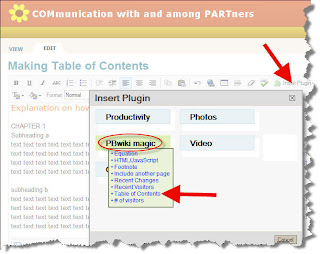


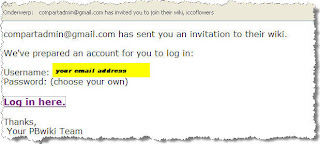
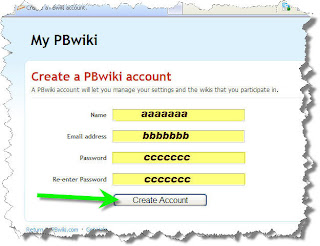
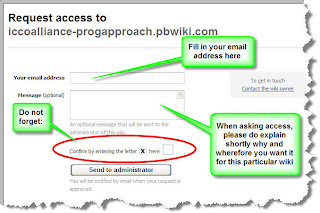
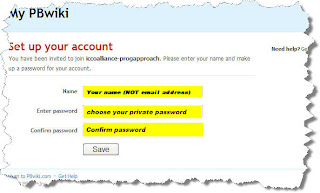

















 Hempal Shrestha, associated with Bellanet Alliance of Social Entrepreneurs – BASE in Asia, hosted at South Asia Partnership International (SAP I), Kathmandu, Nepal.
Hempal Shrestha, associated with Bellanet Alliance of Social Entrepreneurs – BASE in Asia, hosted at South Asia Partnership International (SAP I), Kathmandu, Nepal.  BENGALY OUDOU of Mali, Economist data processing specialist I am the manager of cyberkene technical information of the communication (health education agriculture trades) since 2006.
BENGALY OUDOU of Mali, Economist data processing specialist I am the manager of cyberkene technical information of the communication (health education agriculture trades) since 2006.  Christophe HIEN, french teacher in Burkina Faso. I teach since 1997. First I was in Po and since 2007 I work to capital Ouagadougou. I begun with IT in 2003 with Global Teenager Project supported by IICD through TICE BURKINA. I am a product of IICD in IT. I provide in my school educational use of IT by training teacher and pupils.
Christophe HIEN, french teacher in Burkina Faso. I teach since 1997. First I was in Po and since 2007 I work to capital Ouagadougou. I begun with IT in 2003 with Global Teenager Project supported by IICD through TICE BURKINA. I am a product of IICD in IT. I provide in my school educational use of IT by training teacher and pupils.  Danny Aerts, I work for ATOL, a Belgian NGO. So if you look at it from a Dutch point of view, I'm actually from the South ;-). At ATOL, I'm head of information services. In Congo, ATOL accompanies three networks of documentation centres, in which I'm also involved.
Danny Aerts, I work for ATOL, a Belgian NGO. So if you look at it from a Dutch point of view, I'm actually from the South ;-). At ATOL, I'm head of information services. In Congo, ATOL accompanies three networks of documentation centres, in which I'm also involved. .jpg)





